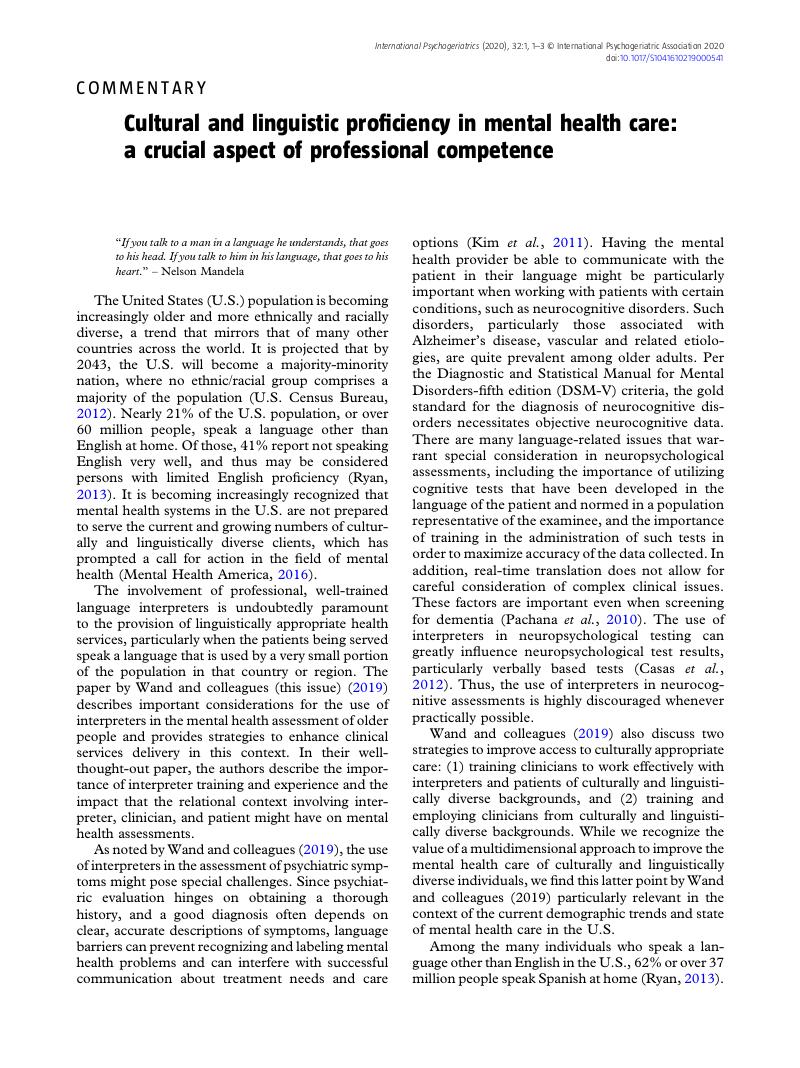Crossref Citations
This article has been cited by the following publications. This list is generated based on data provided by Crossref.
Lee, Sangeun
2021.
Evaluation of the National CLAS Standards: Tips and Resources.
Journal of Gerontological Social Work,
Vol. 64,
Issue. 4,
p.
442.
Miteva, Dimitrina
Georgiadis, Foivos
McBroom, Lorna
Noboa, Vanessa
Quednow, Boris B.
Seifritz, Erich
Vetter, Stefan
and
Egger, Stephan T.
2022.
Impact of language proficiency on mental health service use, treatment and outcomes: "Lost in Translation".
Comprehensive Psychiatry,
Vol. 114,
Issue. ,
p.
152299.
Venturi, Carolina
Guízar-Sánchez, Diana
Ramos-Tovar, María Elena
Torres, Melissa
Avellaneda, Flor D.
Torres-Hostos, Luis R.
and
Matuk-Villazon, Omar
2022.
Health Through a Human Right Lens at the US-Mexico Border: Increasing Access to Healthcare for Central American Immigrants.
Frontiers in Public Health,
Vol. 10,
Issue. ,
Rojas-Flores, Lisseth
and
Vaughn, Jennifer Medina
2023.
Encyclopedia of Child and Adolescent Health.
p.
765.
Valdez, Carmen R.
Brabeck, Kalina M.
Barajas-Gonzalez, R. Gabriela
Ayón, Cecilia
and
Rojas-Flores, Lisseth
2024.
Sociopolitically and Trauma-Informed Public Health Practice With Latinx Families: Conceptual Framework and Best Practices.
American Journal of Public Health,
Vol. 114,
Issue. S6,
p.
S485.
McCombs, Laura
and
Brown, Nancy A.
2024.
Measuring mental health outcomes in Walbridge Fire 2020.
Journal of Emergency Management,
Vol. 22,
Issue. 3,
p.
327.



